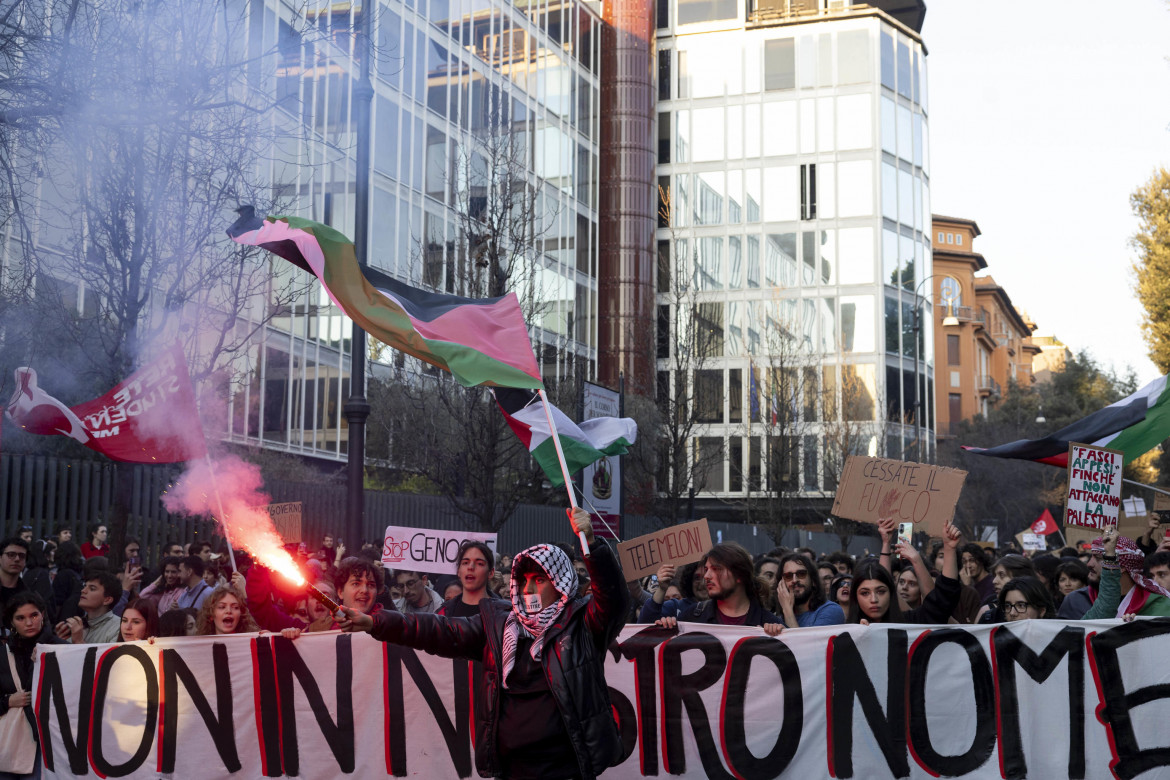Commentary
The inestimable value of civil disobedience
Refusing to get informed and to try to understand the perspectives of the victims (all of them) is drawing us closer every day to an abyss into which we will inevitably plunge. This is why we must be grateful to the students.

Among the dangers threatening humanity, the lack of intellectual curiosity is one of the most insidious. Along with conformism, which feeds on both fear and selfishness, the tendency not to ask too many questions and to go with the flow produces a certain kind of stolidity that we’re seeing just about everywhere: in newspapers, on TV, on social media.
In the face of such a tragedy as the one unfolding in Gaza, the lack of intellectual curiosity is a particularly serious matter, because it contributes to generating a form of moral insensitivity that leads many to ignore a systematic violation of international law that is unfolding before our eyes.
Refusing to get informed and to try to understand the perspectives of the victims (all of them) is drawing us closer every day to an abyss into which we will inevitably plunge. This is why we must be grateful to the students who are demonstrating at U.S. and European universities.
Their nonviolent actions of civil disobedience are an appeal not only to our conscience, but also to our sense of justice. These are gestures that are invaluable in a democratic regime.
It is striking that among the most prominent figures who practice this kind of stolidity, often even bragging about it, we find intellectuals who cast themselves as defenders of liberalism. And yet, the liberals should be the first ones to recognize that the manner in which the students are carrying out their protest has all the features of a political act addressing the governing majority, and is justified by principles of justice that find their legal formulation in the constitutions of democratic countries.
Equal respect for everyone, recognition and protection of personal dignity and security for all, and the observance of international law are not the heritage of only one side, but should be values shared by the entire citizenry.
Those who made this point included some of the most prominent thinkers of contemporary liberalism, from John Rawls to Ronald Dworkin, and also one of the most clear-eyed critical consciences in twentieth-century Jewish culture, Hannah Arendt. The occasions that prompted these authors to reflect on civil disobedience were the rise of the civil rights movement in the United States, in which, like today, many students took part, and then the protests against the Vietnam War, which originated at the universities.
Then as now, those who were calling for repressing the protests cast themselves as defenders of law and order, against the protesters who, by occupying university buildings, were violating property rights. Refuting this narrow conception of law and freedom (which is not reducible to property rights), John Rawls defended civil disobedience as a “public act.” Not only because it takes place in public, but also because it invokes public principles, as its motivation is not related to personal gain.
On the contrary: those who carry out these forms of protest jeopardize their own self-interest by exposing themselves to violent interventions by law enforcement and to the risk of incurring sanctions of various kinds: criminal, administrative and social (in the United States, the self-styled defenders of law and order are urging prospective employers to reject job applications from students who have taken part in protests).
For Rawls, civil disobedience can be likened to public discourse as it is a “form of address” with the function of communicating a message, an expression of “profound and conscientious political conviction,” and thus necessarily taking place in a public forum. As a corollary, it must be nonviolent, as the student protests are.
When breaking any one particular rule, abstaining from violence is each protester’s way of reaffirming their respect for the law as a whole, which does not allow for private violence and restricts the use of force by law enforcement only to cases where it is necessary to defend fundamental values and within limits that are strictly defined.
According to Rawls, acts of civil disobedience are a “crucial test case for any theory of the moral basis of democracy.” In the coming days, we will all be called upon – each in our role as citizens, and some of us also as educators – to show that we are up to this challenge.
Originally published at https://ilmanifesto.it/il-valore-inestimabile-della-disobbedienza-civile on 2024-05-12
